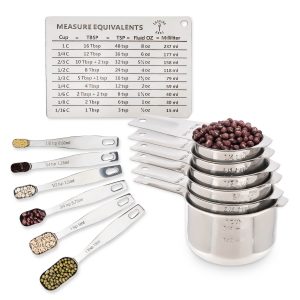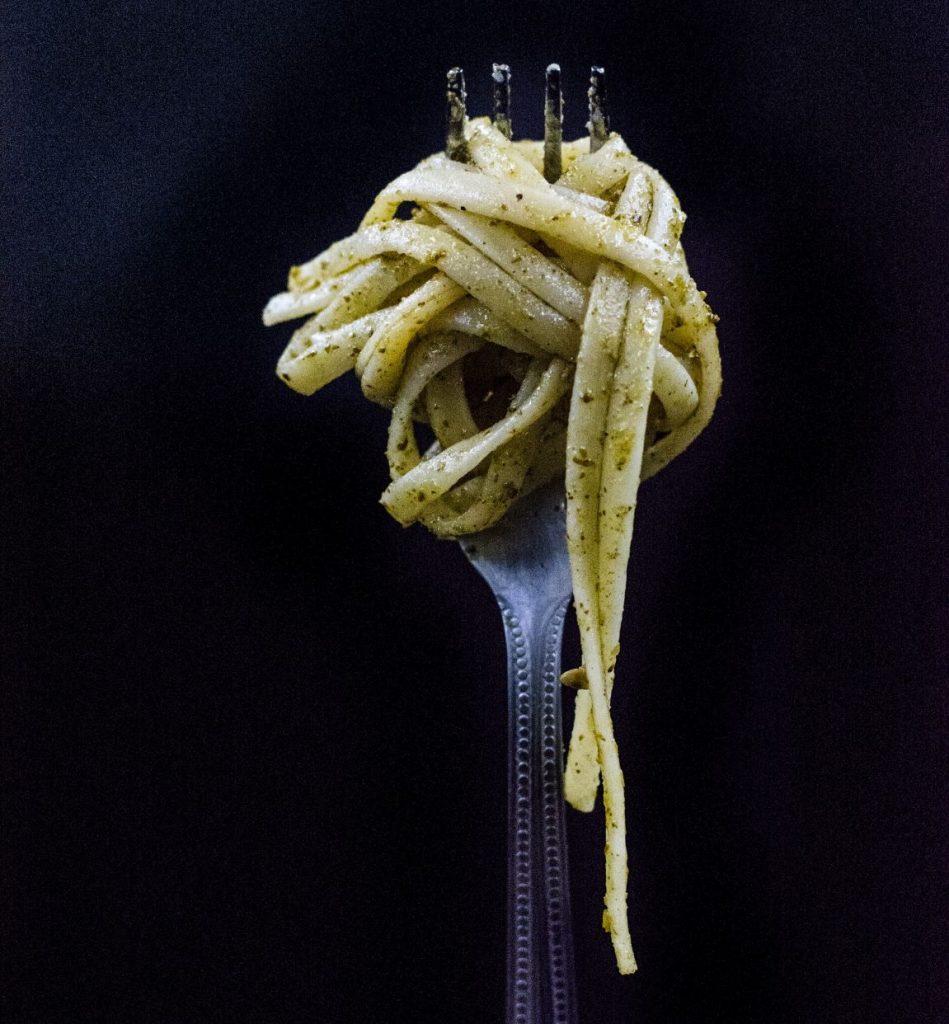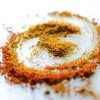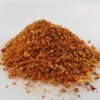[et_pb_section bb_built=”1″ _builder_version=”3.0.47″][et_pb_row _builder_version=”3.0.48″ background_size=”initial” background_position=”top_left” background_repeat=”repeat”][et_pb_column type=”4_4″][et_pb_text _builder_version=”3.10.2″]
Lemon Pepper is so versatile.
Lemon pepper is a spice blend that may not make sense at first but it`s spicy, citric, acid and the notes can be a little confusing at first. However, more you have of it, more you start to feel all the characteristics of lemon pepper. It brings freshness to food, it is great for summer recipes, but also for winter, spring and autumn classic dishes. Lemon pepper is like a secret spell that you own, ready to be used at any time that you desire to surprise.
Commercial or store bought Lemon Pepper blends often do not contain real lemon peel and will use artificial flavours. By making your own you are creating a healthier alternative
If you are new to seasoning food or want to know more about it download our spice eBook
Get our Spice eBook BELOW to get full instructions on how to use this easy spice blend!
Inside is a recipe for a delicious Pasta dish.
PLUS get 5 other spice blend recipes and instructions
BBQ
Mexican
Indian Curry
Cajun
Cuban

Also included in the Ebook :
An amazing discount code to buy our Stainless steel measuring Cups and Spoons – This will ensure accuracy when making your spice mix
The lemon pepper spice origins are not clear.
Lemons and the black peppercorn originated in India. It is not unreasonable to think that they were first combined and used as a seasoning blend there. Both lemon zest and black pepper are used in a number of Indian dishes
It also makes sense that it became more wide spread after the periods of great spice exchange in the world. With the oceanic expeditions and the start of globalization, people started to experiment and mix different varieties of spices, creating new and unusual spice blends.
So probably, lemon pepper came out during this boom period. While companies were looking for new labels to sell different spice blends and people were looking for new flavors to season food at home. Then lemon pepper comes as a versatile and fresh spice, with a strong presence and very citric profile.
Lemon pepper has long been used as a flavoring for fish and seafood.
It can be sprinkled onto fish before grilling. It is amazing when used on salmon!
Or it can be added to butter for lobster or other seafood.
It is also popular for use on pasta and on chicken wings.
Lemon pepper wings have become a staple in the southern United States, especially in the city of Atlanta.
Lemon Pepper Seasoning
- ¼ cup black pepper powder
- 2 tablespoons dried lemon zest (see recipe notes)
- 1 tablespoon dried onion
- 1 tablespoon dried thyme
- 1 teaspoon coriander powder
- 1 tablespoon chili pepper flakes
- 3 tablespoons dried parsley
- Mix all elements together. You may need to use a grinder to distribute the lemon peel through the spice mix
- Store in a spice jar
Note: Dried lemon zest is also called dried lemon peel. Some stores sell it online, but you can also prepare it at home. To prepare it, remove zest from one lemon (not using the white part), then let zest dry naturally for 2 days, on a plate. You can also preheat the oven to the lowest temperature possible, place zest on a non-sticking baking pan and bake to dry it out (5 minutes or less might be enough). There Is also a third option, if you are in a rush, you can use regular lemon zest, however, your spice will only keep for several days if using the zest fresh.
For Accurate Measurements


How to store your blends
- Keep away from heat, moisture, and direct sunlight. Avoid storing over the stove, dishwasher, sink or near a window. These elements will reduce flavour intensity and can also introduce moisture to your blend storage containers.
- Always close spice containers tightly after each use.
How to Optimize Freshness
- Spices and herbs that are whole, will maintain their freshness longer than those that are ground.
- Spices and herbs do not spoil as such but they do lose their strength. Old and weak seasonings will not deliver the taste they should.
- Spices and herbs will keep for a long time if they are stored in airtight bottles. The shelf life of properly stored spices and herbs is approximately 4 years for whole spices, 2-3 years for ground spices and 1-3 years for leafy herbs or when using dried peel.
- To see if your spices and herbs are still fresh – Check the look, smell and taste. A visual check for color fading is a good indicator of flavour loss. Taste and smell your spices and herbs; if a fresh odor or taste is not apparent, they need to be replaced.
- Do not sprinkle spices and herbs directly from the bottle over steam. Steam introduced into the bottle will hasten the loss of flavour and aroma. Steam will also result in the spices clumping together.
- Make sure your measuring spoon is completely dry when you dip it into the bottle. Moisture introduced into the bottle will also result in caking and flavour loss.
[/et_pb_text][/et_pb_column][/et_pb_row][/et_pb_section]




I appreciate your insights on lemon pepper and its versatility in cooking. It’s interesting how a simple spice blend can evoke such a wide range of flavors, making it suitable for different seasons and dishes. I recently experimented with a homemade lemon pepper blend and found that the freshness of real lemon peel truly elevates the taste compared to store-bought versions packed with fillers and artificial flavors.
You nailed it with your homemade lemon pepper blend. There’s something so satisfying about using fresh lemon peel; it really does bring that bright pop to everything. Plus, making your own allows you to tweak the ratio of lemon to pepper just the way you like it—which is hard to find in store-bought versions.
Thank you for your thoughtful comment! If you’re interested in trying out more delicious homemade spice blends, check out this link for some great recipes that can elevate your cooking even further.
https://cookinggods.com/ChocolateHealth
It’s great to hear about your adventure with a homemade lemon pepper blend! There’s something really special about making your own spices; you have full control over the ingredients and can customize the blend to your liking. Fresh lemon peel definitely brings a vibrant brightness that’s hard to mimic with the powdered stuff from the store. It’s like a little burst of sunshine in your dishes!
I’m glad to hear you enjoyed making your own lemon pepper blend! If you’re looking to enhance your culinary adventures even further, check out this link for some great tips and recipes that celebrate the freshness of homemade spices.
https://cookinggods.com/KetoBreads
It’s great to hear about your experience with making your own lemon pepper blend. There’s something really satisfying about using fresh ingredients, isn’t there? The zest of real lemon peel does add that bright, citrusy kick which is hard to replicate with pre-made mixes.
I’m glad to hear you enjoyed your homemade lemon pepper blend! If you’re looking for inspiration to take your culinary experiments even further, check out this curated collection of delicious recipes that highlight the bright flavors of lemon pepper.
https://cookinggods.com/ChocolateHealth
I really enjoy how you highlighted the magic that fresh lemon peel brings to a homemade lemon pepper blend. It’s one of those ingredients that can make such a significant difference in flavor without needing to rely on artificial additives. When I first tried making lemon pepper at home, I was surprised by how vibrant the taste was—it feels like a whole new spice when you use real ingredients compared to those store-bought jars that can often fall flat.
“I’m so glad to hear you enjoyed making your own blend! If you’re looking to elevate your culinary creations even further, check out my favorite recipe for a fresh lemon pepper blend.”
https://cookinggods.com/KetoBreads
It’s great to see that you really connected with the idea of fresh lemon peel transforming a homemade lemon pepper blend. There’s something really satisfying about using quality ingredients that just elevates the whole experience.
“To take your homemade seasoning to the next level, don’t miss my favorite recipe for a fresh lemon pepper blend!”
https://cookinggods.com/SmoothieRecipes
I really appreciate your insights on lemon pepper! It’s fascinating how a simple blend can transform the way we think about seasoning. I totally agree that lemon pepper can elevate dishes across all seasons. I’ve started experimenting with it in different cuisines — I especially love it on grilled vegetables and seafood during summer barbecues.
It’s great to hear how you’re using lemon pepper in your cooking adventures. It’s amazing how such a straightforward blend of flavors can really change the game. Grilled vegetables and seafood sound like a perfect match, especially during those hot summer barbecues where you want something vibrant and refreshing.
I’m thrilled to hear you’re enjoying lemon pepper in your cooking! If you’re looking for more inspiration and unique recipes to take your culinary adventures even further, check out this link for some great ideas!
https://cookinggods.com/SmoothieRecipes
I’m glad to hear you’re enjoying lemon pepper in your kitchen! It really is incredible how just a simple blend of lemon zest and pepper can open up so many culinary doors. You mentioned using it on grilled vegetables and seafood during summer barbecues, which sounds delightful. I find that the bright acidity of the lemon complements the smokiness from the grill perfectly, enhancing those natural flavors in a way that feels refreshing.
I’m so glad to hear that you’re enjoying lemon pepper in your culinary adventures! If you’re looking for more exciting ways to use this versatile seasoning, check out some delicious recipes here.
https://cookinggods.com/ChocolateHealth
I love your take on lemon pepper! It really is an enchanting blend that can elevate so many dishes. It’s fascinating how a simple mix can transform the mundane into something memorable. Speaking of versatility, I often find myself using it not just on meats, but also on roasted vegetables or even in dressings for salads.
I completely resonate with your take on lemon pepper as a versatile spice blend. It’s fascinating how something so simple can elevate a dish and evoke different feelings depending on the season. There’s something about its bright, zesty flavor that just screams summer, yet when paired with heartier winter dishes, it creates a wonderful contrast that feels both refreshing and comforting.